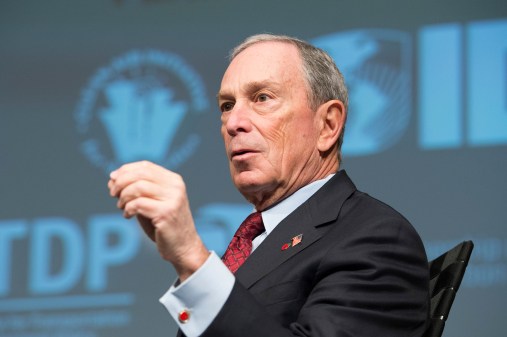Bloomberg to offer city roadmap for data-driven decision making as cohort grows

With a new total of 55 city partners and halfway through its three-year life span, Bloomberg Philanthropies’ What Works Cities initiative (WWC) revealed plans Monday to publish a roadmap that teaches cities how to improve services and solve challenges with data.
News of the roadmap — which will be freely accessible to the public — was accompanied by a Bloomberg release reporting the addition of 16 additional cities to the $42-million program. The initiative’s stated goal is to provide digital expertise to 100 mid-sized cities by its conclusion. WWC executive director Simone Brody said their teams are roughly 18 months in and now thinking about the longevity of the program’s impacts, how its reach might expand, and how its best practices can be used beyond the finish date of April 2018.
“I think that that is going to be one of the very exciting ways that we’re going to be able to advance the data practices in the cities that aren’t part of our 100 cities,” Brody said, referring to the road map.
Though still in development, she said the idea circulating within the philanthropy and its partners — which include the Harvard Kennedy School of Government Performance Lab, Johns Hopkins University’s Center for Government Excellence, Results for America, the Sunlight Foundation and the U.K.’s Behavioural Insights Team — is to deliver a resource that is more enduring than any single data project. The vision, Brody said, is to deconstruct the methodologies behind data innovation so they are distilled into easily understandable and applicable practices.
“What we’ve seen in that technical assistance is how powerful it is to build the capacity of city leaders so that they can do this work themselves,” Brody said. “This work is not just to go in as consultants, but to go in and train city staff so they can develop skill sets they can use to go in a totally different direction.”
So far, the program reports it has collaborated with 90 mayors on data efforts, engaged more than 1,700 city employees on analytics and performance management projects, and has generated more than 130 instructional resources for cities inside the U.S. and internationally.
The allure of organizational impact is one of drivers that has enticed more cities to sign on. Brody reported that demand from cities to participate in the program has exceeded well beyond the initial goal of 100.
New What Works Cities Members
- Albuquerque, N.M.
- Birmingham, Ala.
- Boulder, Colo.
- Des Moines, Iowa
- Fort Worth, Texas
- Hartford, Conn.
- Knoxville, Tenn.
- Lincoln, Neb.
- Madison, Wis.
- Nashville, Tenn.
- Olathe, Kan.
- Portland, Ore.
- Salt Lake City
- South Bend, Ind.
- Syracuse, N.Y.
- Virginia Beach, Va.
“This notion of capacity building, and helping cities build systems, is really powerful in creating what is now looking like systemic change, changing the culture of cities and changing how cities are making decisions every day,” Brody said.
If the roadmap is anything like current efforts in the program, it will stir some compelling outcomes. In Lexington, Ky. — one of the initial cities to join — leadership used data to identify low-cost interventions to decrease unpaid sewer bills by 132 percent. In Mesa, Ariz., leaders used WWC experts to engineer a web app that analyzes data on code violations, crime rates, graffiti, and vacant properties to prioritize blighted neighborhoods for $780,000 in community assistance. New Orleans turned to the program to coordinate a text message campaign that spurred more than 350 low-income and uninsured residents who went more than two years without seeing a doctor to schedule a free medical appointment.
The common thread in all of these examples, Brody said, is the emphasis on overall outcomes and not simply beneficial activities.
“I think the hardest part of the work is how do you help cities actually make different decisions on how to spend their money based on looking at what works,” Brody said.
Once the roadmap is complete, WWC organizers are considering releasing a set of playbooks targeted specifically at the most pressing challenges the cities share. Within the 18 months of collaboration, mayors’ requests for help have centered the movement around high-visibility areas that include infrastructure, public safety, economic development and education.





